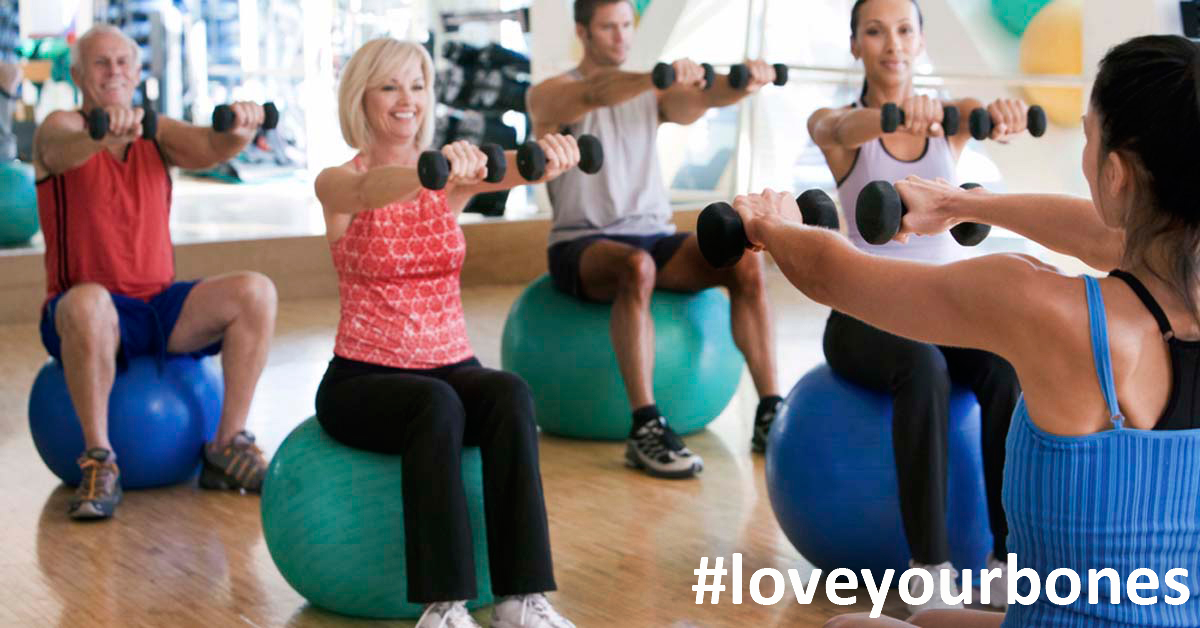Osteoporosis is a global issue, affecting up to one in three women and one in five men. Genetic factors have a role to play in determining an individual’s likelihood of developing osteoporosis but lifestyle factors also have an influence. Simple steps can be taken – like a routine of weight-bearing, muscle-strengthening exercise - to help improve bone-health.

But how prevalent is osteoporosis?
The condition causes bones to weaken so that they break more easily. According to the IOF, up to one in three women and one in five men (aged 50+) will suffer an osteoporotic fracture. These fractures can prove painful, cause long-term disability or even be life-threatening.
Can anything be done, to help prevent osteoporosis?
Although genetic factors do have a role to play in determining an individual’s likelihood of developing osteoporosis, lifestyle factors can also have an influence. And fortunately there are some simple steps that can be taken, to improve bone-health no matter what your gender, life-stage or bone-health status. These steps include:
- A routine of weight-bearing, muscle-strengthening exercise
- A balanced diet, rich in nutrients like calcium, protein and vitamin D
- Cutting out the cigarettes and limiting alcohol consumption
The role of exercise
Building and maintaining bone health is essential for both genders and at all life-stages. And exercise really is an excellent starting point, to build and maintain bone and muscle strength. Adults who get insufficient exercise lose bone density more quickly than their fit-as-a-fiddle counterparts. And sedentary older people are far more likely to suffer fractures. According to the IOF, this is because bones respond and strengthen when they are 'stressed' and the best way to achieve this? By getting plenty of weight bearing exercise.
What is weight-bearing exercise?
Weight-bearing exercise – the kind that’s good for your bones – is any form of exercise that requires you to work against gravity. Swimming and cycling, for example, would not be weight-bearing but good examples of weight-bearing activities include:
- Weight training
- Hiking
- Running
- Tennis
- Dancing
So, what are you waiting for? Your bones - not to mention the rest of your body - will thank you for a good-old workout.
And why are Sunsweet involved with the campaign?
Plenty of fruit and veg, as part of a nutritious diet, simple things that are bound to have a positive impact on overall health. And bone health is no exception. Did you know that prunes can be an ally when it comes to bone health management? Research suggests that the nutrients in them – things like vitamin K and manganese – can help to maintain normal bones. Yet more reasons to stock up on these tiny – and scrummy – nutritional power-houses!
More info:
If you’d like to find out more about bone health, please do take a look at the Prunes and Bone Health section of our website. Or visit our dedicated Bone Health library where you can download informative and yet simple-to-read whitepapers including the following:
- Love Your Bones! – Bone Health and Prunes
- Serve up Bone Strength – IOF Patient brochure
- IOF Fact Sheet
- Know Your Risk– IOF Patient brochure
Please Note: Prunes are good for digestion and help keep you regular, when 100g are eaten as part of a varied and balanced diet and an active lifestyle. Always consult a GP if you have any health concerns.





